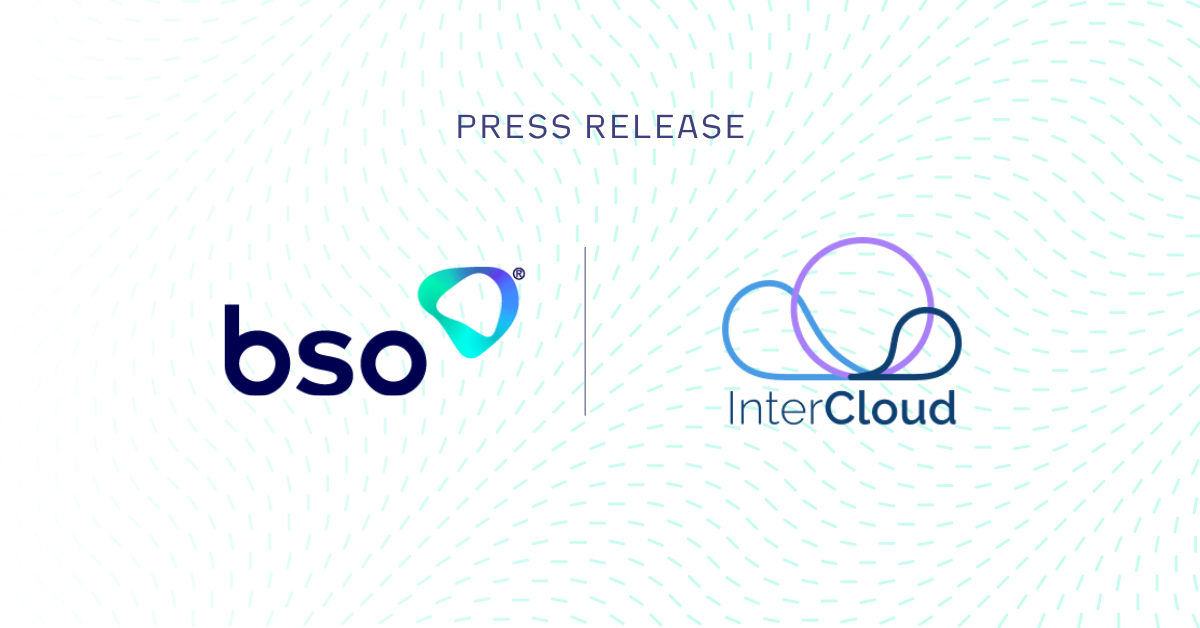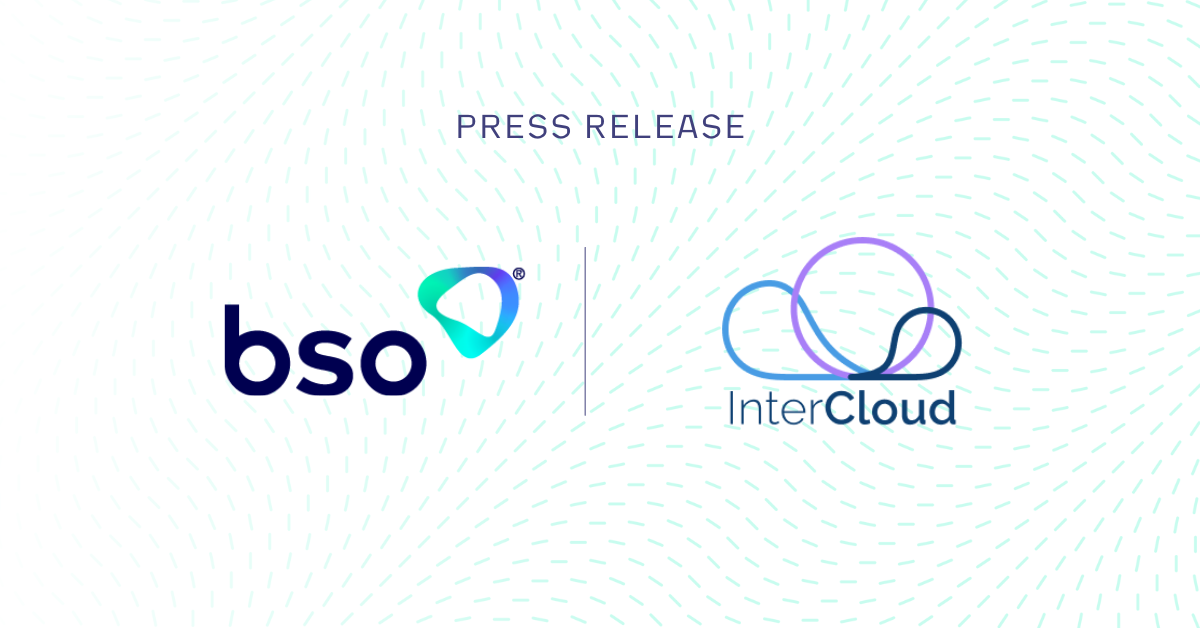
BSO’s Cloud Computing Glossary returns with the four cloud models available to businesses – public, private, hybrid and multi cloud.
As mentioned in BSO’s Cloud Computing Glossary introduction, the ability to quickly scale IT resources, improve data security and availability, reduce operational costs and introduce greater flexibility has made cloud computing highly attractive to enterprises, particularly in the wake of the global pandemic.
It’s hardly surprising then to see Gartner forecast that spend on public cloud services alone will grow 18.4% in 2021 to total $304.9 billion.
But while the benefits of the cloud are widely known, before embarking on a cloud migration strategy, it is important to first understand what each cloud model offers and how they fit with your business objectives.
Being on the cloud means businesses can take advantage of hosted services including infrastructure as a service (IaaS), platform as a service (PaaS) and software as a service (SaaS) and these are delivered through private, public, hybrid or multi clouds, depending on the needs of the organisation.
While a public cloud sells services to any business and can offer huge compute capacity, a private cloud is a proprietary network or a data centre owned by one organisation in which its network infrastructure, applications and data reside. A hybrid cloud allows both public and private clouds to integrate seamlessly while multi cloud describes more than one cloud deployment of the same type but sourced from different vendors.
Let’s look at these in more detail.
Public Cloud
Third parties offer public cloud services and infrastructure over the internet using a pay-as-you-go model. Because these services can deliver massive capacity, they are suitable for organisations that are scaling quickly and ideal for collaborative projects or software development.
Public clouds are accessible from anywhere with an internet connection and by anyone with authorised login credentials. While there are many different examples of public clouds and those that offer both services and infrastructure are increasingly dominated by hyperscalers such as AWS, Google, Microsoft, Oracle, IBM, and Alibaba.
For companies that have little interest in owning their own infrastructure or operating systems, the advantages of the public cloud are considerable. Not only can capacity be provisioned on demand there is also no requirement for upfront capital expenditure. Regulatory compliance, standard security protocols, platform updates, and software upgrades are built into the service.
Private Cloud
Larger enterprises favour private cloud because of the higher control over their IT environment. This model can be hosted externally through a managed service or colocation provider, or on-premise within a data centre. It is particularly beneficial for businesses working within strict regulatory frameworks. Access to private clouds is restricted only to those within the organisation.
A private cloud guarantees resource availability but for most users its primary advantage is security and control. The physical security of the infrastructure is easier to manage while the private network links that enable access are generally regarded to be more secure than those used on the internet for public cloud access.
For organisations that do not anticipate expanding hardware or storage capacity a private cloud can be a sound economical choice, giving the company the reassurance of knowing they are in full control of their IT environment.
Hybrid Cloud
Fortunately, businesses don’t have to choose between a private cloud or public cloud. A hybrid cloud offers both, combining a private cloud with one or more public cloud services, and these can be orchestrated together for maximum interoperability.
Concerns about sensitive data can be allayed by storing it on the private cloud, while at the same time, the robust and expansive resources of a public cloud can be utilised to scale the business. The uniform management of a hybrid cloud lowers the risk of security breaches because all elements are optimised to work with each other.
Apart from delivering a range of environment options, hybrid clouds are ideal for organisations whose computation needs fluctuate. The ability to pay for resources only when they are most needed is a significant benefit and many organisations choose to go down the hybrid route when they are launching new applications with unknown workloads.
Multi cloud
Different public cloud providers offer different services, and a multi cloud approach allows companies to select the best and most suitable resources from a range of providers. Unlike with the hybrid cloud approach, management of multi-cloud is separate, and while a private cloud can be part of a multi-cloud model, it is not usually accessible as part of a single software-defined network.
Multi clouds offer versatility and security, and in organisations where different departments have different needs, it can help to serve specialist resources. In healthcare, for example, a research department will have different cloud requirements to the patient management team.
The key benefit to multi cloud is that companies are not dependent on one public cloud provider and if it combines both public and private, companies can achieve multiple goals simultaneously without the need to invest in new infrastructure or applications, and benefit from the specific advantages of each model.
Taking the next step
When it comes to cloud, there is no shortage of choice, but that can also be confusing. Every company’s cloud needs are different, and the best approach is to work with an expert who understands the entire landscape.
One of the most important aspects when migrating to the cloud, or moving from a private to a public model, is interoperability and cloud connectivity. This allows companies to change providers as they need to or use a range of providers at the same time, such as in a multi cloud scenario, without encountering technical challenges or disruption.
Cloud interoperability is not a service offered by all providers, particularly in the large public cloud space, so if seamless connections and a managed approach to performance, security, regulations and pricing is essential, the first stop must be with an expert that can do this for even the most complex workloads.
ABOUT BSO
The company was founded in 2004 and serves the world’s largest financial institutions. BSO is a global pioneering infrastructure and connectivity provider, helping over 600 data-intensive businesses across diverse markets, including financial services, technology, energy, e-commerce, media and others. BSO owns and provides mission-critical infrastructure, including network connectivity, cloud solutions, managed services and hosting, that are specific and dedicated to each customer served.
The company’s network comprises 240+ PoPs across 33 markets, 50+ cloud on-ramps, is integrated with all major public cloud providers and connects to 75+ on-net internet exchanges and 30+ stock exchanges. The team of experts works closely with customers in order to create solutions that meet the detailed and specific needs of their business, providing the latency, resilience and security they need regardless of location.
BSO is headquartered in Ireland, and has 11 offices across the globe, including London, New York, Paris, Dubai, Hong Kong and Singapore. Access our website and find out more information: www.bso.co
SALES ENQUIRY
Get in touch now. Find out how we can transform your business_
You might be interested in_
THE BSO DIFFERENCE
The industries we work across_





/Revolutionising-Connectivity%20BSOs-Tailored-Cloud-Solution-for-CryptoStruct-GmbH.png?width=1050&height=550&name=Revolutionising-Connectivity%20BSOs-Tailored-Cloud-Solution-for-CryptoStruct-GmbH.png)
/6%20Cloud%20Best%20Practices%20for%20Financial%20Technology%20Companies.jpg?width=1200&height=600&name=6%20Cloud%20Best%20Practices%20for%20Financial%20Technology%20Companies.jpg)








